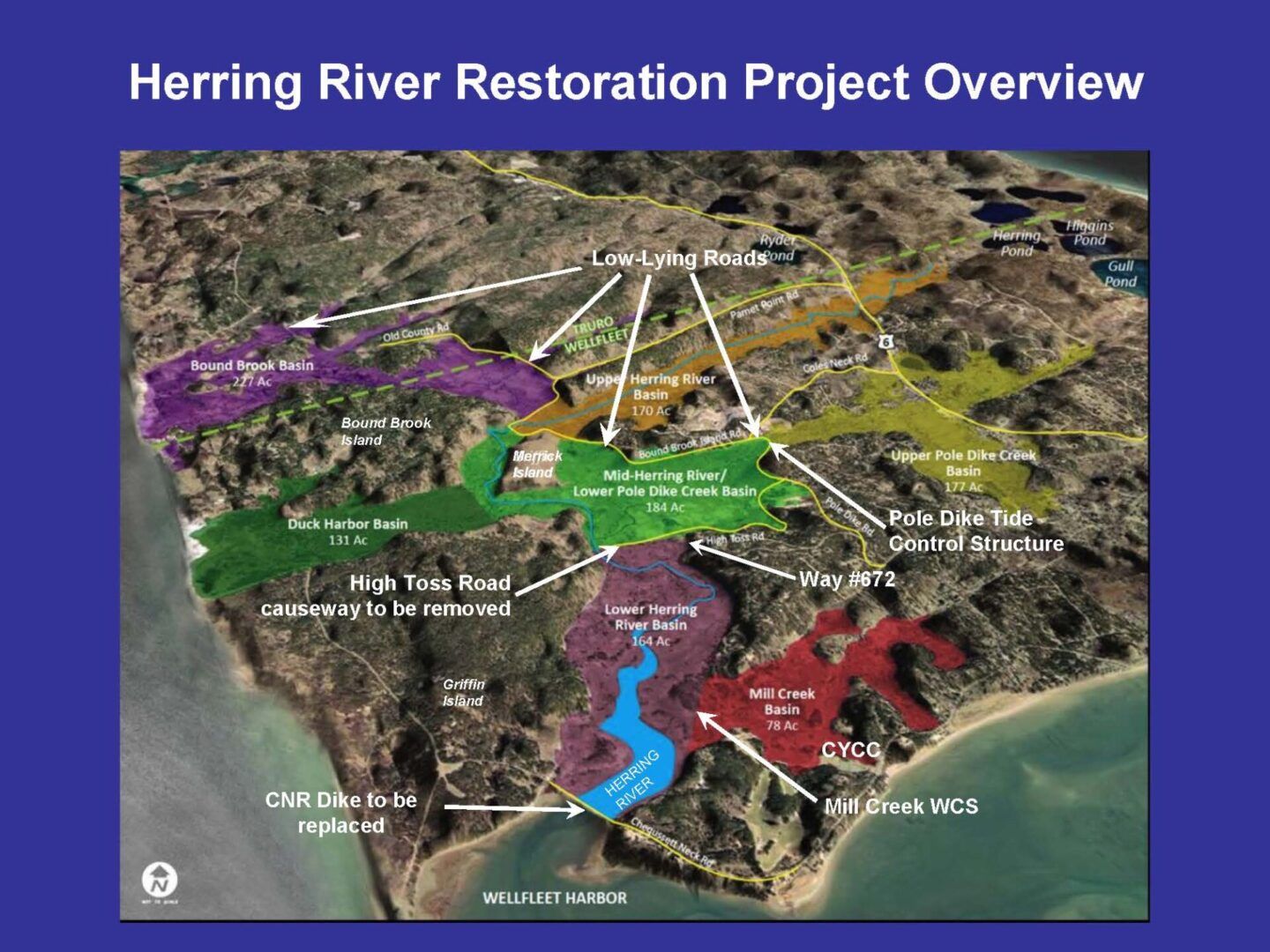Winter Conferences
Dec 22, 2023 update:
PARTICIPATION HAS BEEN CONFIRMED BY STATE AND FEDERAL AGENCIES, NON-PROFITS, ACADEMIA AND THE PRIVATE SECTOR.
2024 Winter Conference
on Resilient Restoration
Friday, February 16, 2024
Crowne Plaza, Warwick RI
Crowne Plaza, Warwick RI

SWCS Southern New England Chapter is taking a soup-to-nuts look at restoration projects focused on improving resiliency and repairing damage cause by humans. One such project will be used as a case study for permitting as an Ecological Restoration Limited Project under the Massachusetts Wetlands Protection Act. Broad participation has been confirmed by state and federal agencies, non-profits, academia and the private sector; scroll down for preliminary program information and check back for updates as the program develops.
Certificates of attendance will be provided to document 6 solid hours of educational content suitable for professional certification renewals.
Theme:
COMMUNITY-BASED, COLLABORATIVE RESILIENT RESTORATION PROJECTS
Partnerships and collaboration are integral to success. Join us in sharing ideas, case studies, success stories and lessons learned!
The Call for Presentations requested topics including but not limited to:
Case Building and Community Outreach • Partnerships and Funding • Landowner Coordination • Engineering and Design • Permitting • Monitoring • Scientific Studies • Legal Agreements • Bidding and Contracts • Construction • Implementation • Adaptive Management • Data Sharing and Reporting
We’ve had excellent response but are still accepting suggestions about collaborative efforts to restore degraded resources and increase resiliency. Please let us know if you’re working on a community-based restoration project or conducting resiliency-related studies in Connecticut, Massachusetts or Rhode Island.
Registration is online via credit/debit card only.
-
General Admission: $125
-
SWCS Member: $75
-
Student General Admission: $50*
-
SWCS Student Chapter Member: $25
-
Blue Light Special: $190
Join the Soil & Water Conservation Society now at the $115 Conservationist level and benefit immediately by registering at the $75 SNEC Member rate! Simply select the Blue Light Special option when you register – we’ll handle the SWCS membership paperwork. For more information about benefits of membership (including a subscription to the Journal of Soil and Water Conservation)
*Students must be currently enrolled full-time at an accredited high school, college, or university.
-
Rain or Shine | No Refunds | Transfer Allowed
-
Lunch and coffee will be provided.
-
Registration includes presentations and access to exhibits.
EXHIBIT TABLES AVAILABLE!
SWCS Southern New England Chapter’s mission is promote, educate and advance the science of soil, water and related resources conservation. We seek vendors of products and services that can help deliver solutions during all phases of the project
Exhibitor Registration: $500
Includes one 6-foot table with drape and registration for one (1) person
Additional Exhibit Staff: $75
For more information, contact jc@swcssnec.org.
~~~~~~~~~~~~~~~~~~~
To get a sense of the PROSPECTIVE AUDIENCE, see lists of attendees at previous SNEC Winter Conferences:
~~~~~~~~~~~~~~~~~~~
SPONSORSHIP OPPORTUNITIES!
The Southern New England Chapter of the Soil and Water Conservation Society invites you to join us in our mission to promote, educate, and advance all phases of the science of conservation of soil, water and related resources. We believe that by partnering with organizations that share our goals, we can work together towards a more sustainable future.
Interested in becoming a sponsor? Please reach out to Jaime Clintsman, jc@swcssnec.org or 214.870.9249 for more information.
SNEC is please to announce that participation has been confirmed by
-
Wenley Ferguson, Director of Habitat Restoration, Save The Bay
-
Bill Giuliano, Cranberry Bog Program Manager, Mass Division of Ecological Restoration
-
Melissa Kaplan (Licensing and Permitting Team Lead) and Tom Groves (Senior Botanist), BSC Group
-
Joe Manetta, Graduate Research Assistant, URI
-
Christine Odiaga, Assistant Project Manager, Friends of Herring River
-
US Fish & Wildlfie Service Coastal Program
Details to follow as additional speakers confirm.
A Special Wetland
Eversource Energy’s Atlantic White Cedar Mitigation
and 1st Year of Long-Term Monitoring

Connecticut Department of Energy and Environmental Protection (CT DEEP) considers Cedar Swamps (wetlands that contain Northern or Atlantic White Cedar) as a Special Wetland with the presumption that these natural communities provide habitat for State-listed rare species. Mitigation for Atlantic White Cedar (AWC) tree removal was required as part of Eversource Energy’s 400/500 Lines Rebuild Project as a condition of the CT DEEP issued 401 Water Quality Certification. The Mitigation Plan included enhancement of an existing 0.5-acre Atlantic White Cedar (AWC) stand and expansion/creation of 0.25-acre AWC habitat through the planting of 159 locally sourced AWC seedlings as well as herbivory protection fencing installation. In addition to this revegetation effort, annual monitoring of the planting was necessary to determine the long-term success of the plantings. This presentation provides detail on the project, the required mitigation plan, and the results of the 1st year of monitoring.
Herring River Tidal Restoration Project:
a WPA Ecological Restoration Limited Project Case Study
In 2014, the Massachusetts Department of Environmental Protection (MassDEP) adopted new regulations to facilitate permitting of Ecological Restoration projects “whose primary purpose is to restore or otherwise improve the natural capacity of a Resource Area(s) to protect and sustain the interests identified in M.G.L. c. 131, § 40, when such interests have been degraded or destroyed by anthropogenic influences.” These included a Massachusetts Wetlands Protection Act (WPA) general permit for Ecological Restoration (ER) projects that meet specific criteria and provisions to guide development and permitting of ER projects that are not eligible for the general permit.

In its natural, historic state, the Herring River in Wellfleet Massachusetts supported a vibrant estuarine ecosystem and the largest diadromous fish run on outer Cape Cod. Construction of a dike at the mouth of the river in 1909 and other alterations to the natural hydrology eliminated tidal flow to the salt marsh, drained the wetlands and transformed the estuary into one of the Cape’s most degraded natural resources.
Replacement of a portion of the dike with a new bridge and tidal control structures, combined with removal of other barriers to fish passage and tidal exchange, will restore water quality and habitat connectivity to the entire estuary, restore marine and coastal habitats, improve resiliency to climate change, provide economic benefits to the region and revive a herring run that feeds the Gulf of Maine fisheries. Nine adjustable tide gates will allow incremental reintroduction of tidal flow in accordance with a scientifically rigorous Adaptive Management Plan based on structured decision-making; increasing tidal flow will bring saltwater back to the river and return it to the thriving and ecologically productive estuary it was for thousands of years before the dike was built.
Phase 1 of the Project includes (i) construction of all infrastructure needed for full restoration of tidal exchange to the Herring River estuary, (ii) vegetation/marsh management, and (iii) reintroduction of tidal flow to a specified water surface elevation in the lower Herring River basin. The environmental permitting process began with the filing of an Environmental Notification Form in 2008 and was completed in the spring of 2022 with issuance of WPA Orders of Conditions by the Wellfleet and Truro Conservation Commissions approving the Tidal Restoration limited project.
The SNEC Board is pleased to announce that we’ve hired a part-time Administrator and Event Coordinator: Jaime Clintsman.
Jaime will be the primary point of contact for this conference and for SNEC matters in general. If you have suggestions or would like to participate, please contact Jaime at (214) 870-9249 or jc@swcssnec.org.
No Events Found

Conservation NewsBriefs
-
US wetlands 'restored' using treated sewage tainted with forever chemicals
Source: Conservation News Briefs Published on: 2025-07-23
-
The impact of climate change on stormwater management
Source: Conservation News Briefs Published on: 2025-07-23
-
Trump administration touts farm conservation, says no pesticide crackdown
Source: Conservation News Briefs Published on: 2025-07-23
-
Scientists make revolutionary breakthrough that could solve major problem with how we grow food: 'Could have big, positive agricultural implications'
Source: Conservation News Briefs Published on: 2025-07-23
-
Nonprofit making Biochar with first mobile processing facility in Florida
Source: Conservation News Briefs Published on: 2025-07-23
- 2024 – Collaborative Restoration in Southern New England
- 2023 – Water Quality in Southern New England: The Latest Research, Practice, and Policy
- 2022 – Soil Carbon Storage: Combating Climate Change from the Ground Up
- 2020 – Lights Up: Sustainable Solar in New England
- 2019 – Going With the Flow: Stream Continuity
- 2018 – Healthy Forests, Healthy Habitats
- 2017 – Resiliency Planning
- 2016 – Swamp Things
